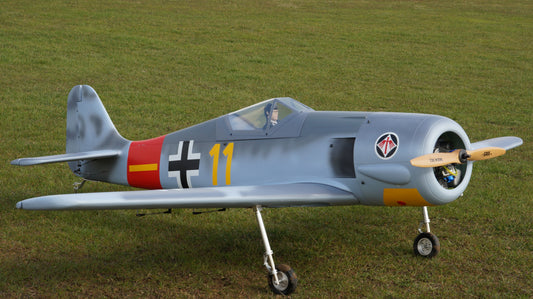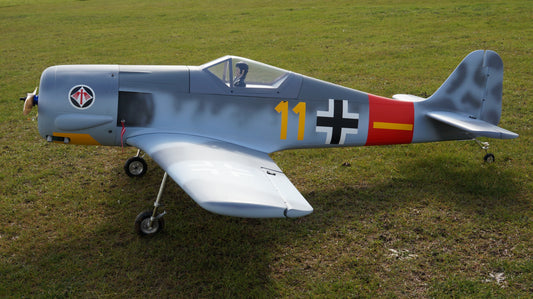Composite RC warbirds represent the cutting edge of model aircraft technology. Combining strength, lightness, and precision, these aircraft offer an unparalleled flying experience.
Understanding Composite Construction
Composite materials are engineered by combining two or more materials to create a new substance with enhanced properties. In the world of RC airplanes, composites like fiberglass, carbon fiber, and epoxy resin are used to construct airframes. This method allows for the creation of incredibly strong and lightweight structures.
Impact on Size and Weight
While composite construction doesn't inherently dictate the size of a plane, it does significantly impact its weight. The ability to create incredibly strong yet lightweight components means that composite warbirds can achieve impressive wingspans without sacrificing performance or maneuverability.
Benefits of Composite Construction
- Strength and Durability: Composite airframes are renowned for their exceptional strength-to-weight ratio. They can withstand the rigors of flight, including rough landings, without compromising structural integrity.
- Precision and Detail: Composite materials allow for intricate and precise shaping, resulting in highly realistic replicas of historical aircraft. Every rivet, panel line, and contour can be meticulously captured.
- Improved Flight Performance: The lightweight nature of composite construction contributes to better acceleration, climb rates, and overall flight performance.
- Reduced Maintenance: Composite airframes are generally more resistant to damage and require less maintenance compared to traditional wood or balsa constructions.
Experience the Difference
If you're seeking a warbird that combines stunning realism, exceptional performance, and long-lasting durability, a composite model is the perfect choice. Immerse yourself in the world of aviation history with an aircraft that captures the essence of the originals.









